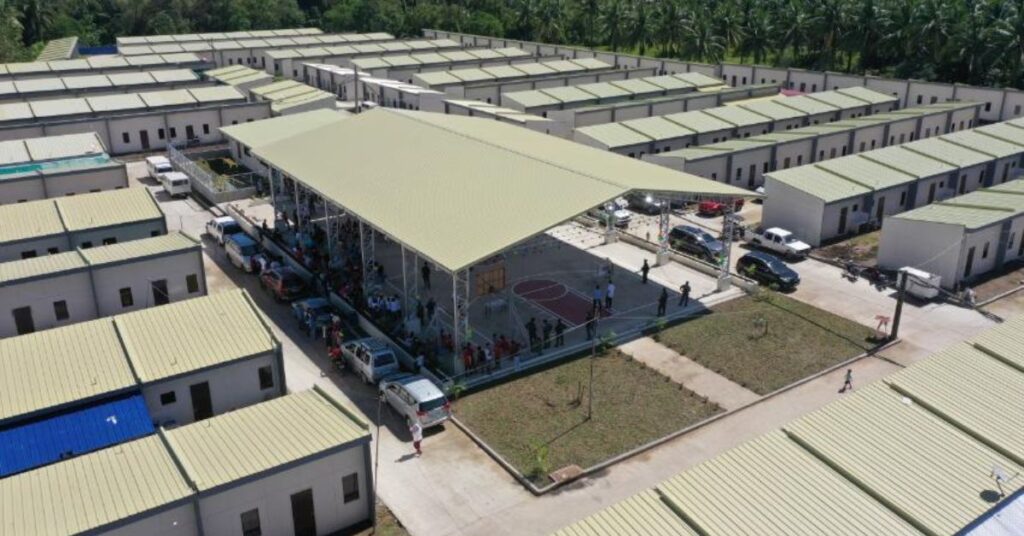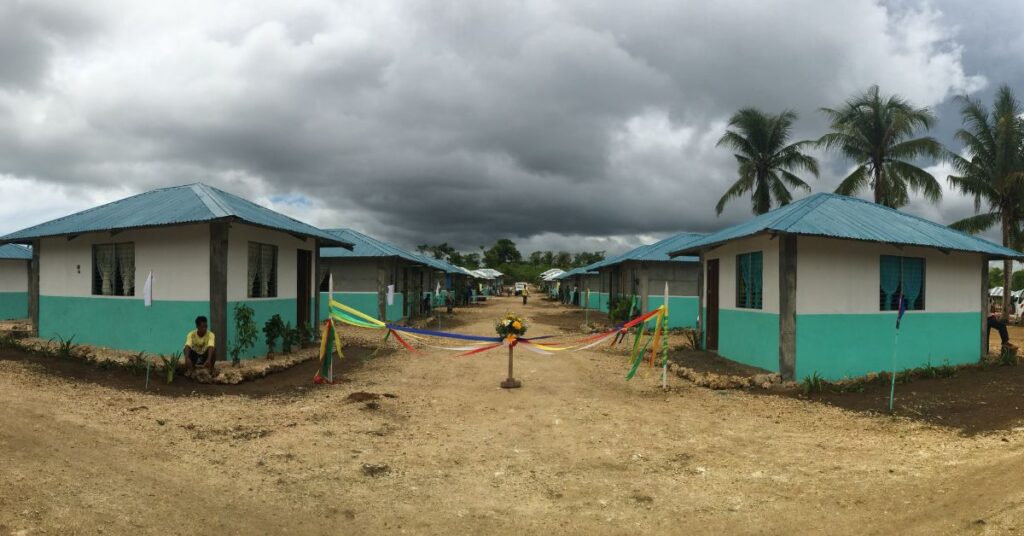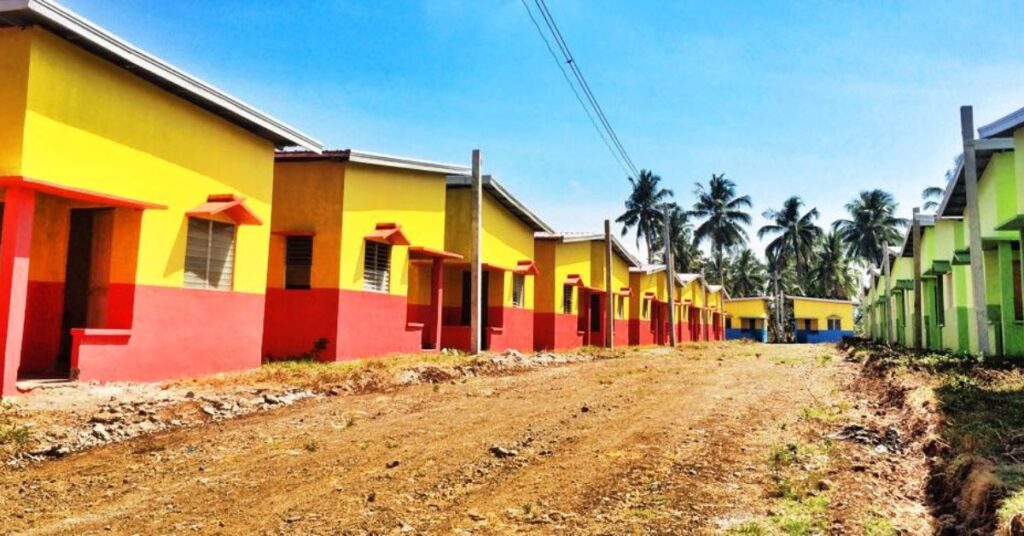Last Updated on January 7, 2024 by OJ Maño
Table of Contents
Since 2013, in the aftermath of typhoons Sendong and Yolanda, San Miguel Corporation (SMC) has been at the forefront of building resilient homes for communities nationwide.
Typhoon Sendong, also known as Typhoon Washi, struck the Philippines in December 2011, leaving a trail of destruction in its wake. The typhoon brought heavy rains that triggered flash floods and landslides, particularly affecting Mindanao’s northern and central parts.
Cities like Iligan and Cagayan de Oro experienced severe flooding, leading to significant casualties and extensive damage to homes and infrastructure. The aftermath of Typhoon Sendong resulted in over a thousand fatalities and left thousands of people displaced.
On the other hand, Typhoon Yolanda, or Typhoon Haiyan, hit the Philippines in November 2013 and stands as one of the strongest tropical cyclones ever recorded. It wreaked havoc across the Visayas region, impacting areas such as Leyte, Samar, and Tacloban City. Yolanda’s storm surge caused massive destruction along the coastlines, resulting in extensive damage to infrastructure, homes, and agriculture.
Yolanda’s tragic aftermath included many casualties, prompting international relief efforts to assist the affected communities. Both Typhoon Sendong and Typhoon Yolanda underscored the vulnerability of specific regions in the Philippines to tropical cyclones and emphasized the critical importance of disaster preparedness and resilient infrastructure.
The government and humanitarian organizations played pivotal roles in responding to and facilitating recovery from the impacts of these devastating storms.
SMC Building Homes and Helping Communities

Partnering with several organizations, including Gawad Kalinga and Habitat for Humanity, SMC has invested P3.05 billion in the last decade to build or help provide new homes for families impacted by natural disasters and various development projects.
SMC President and CEO Ramon S. Ang, acclaimed as a “Hero of Philanthropy” by Forbes Asia, emphasizes that providing secure housing is the first step in empowering families for nation-building.
“Housing is a basic need. We must first support the family unit to enable Filipinos to participate in nation-building. Providing safe homes for those affected by calamities or without a home has been our first step to transforming their lives,” he said.
SMC has built homes and communities in various areas nationwide, including Iligan City, Cagayan de Oro, Bukidnon, Negros Oriental, Davao, Surigao, and Bohol, among others.

By the time the pandemic happened in 2020, SMC’s program had evolved from simply building houses to advancing holistic community development.
Its latest housing community in Sariaya, Quezon, serves as a model. It features disaster-resilient and eco-friendly homes and amenities that include a multi-purpose center, covered court, livelihood center, e-library, a fishermen’s wharf, and a public market run by the residents.
Training programs on entrepreneurship, personal finance, food processing, farming, and other income-generating activities have also been provided to residents.
In partnership with the Technical Skills Development Authority (TESDA), SMC has extended this skills and livelihood training program nationwide while assisting informal settlers in various locations to secure titled properties and build permanent homes in multiple places.

“Wherever San Miguel operates, progress follows. We aim to ensure that those we help are equipped for long-term success,” Ang said.
“But just as important as housing and jobs is having a sense of community. Being part of a supportive network is essential for their long-term success,” Ang said.
This brought the company to its current flagship social development program, the SMC Better World Community Centers.
The project utilizes SMC’s unused properties and other resources to scale up the capabilities of partner organizations to address pressing issues at the community level.
SMC currently has four Better World Community Centers: Better World Tondo, a food bank, feeding, learning, and health center; Better World Diliman, a ready market for excess farm produce to support local farmers; Better World Cubao, a center for women’s health and issues that also has a clinic and livelihood training facilities, and Better World Smokey Mountain, a learning center for adults and children living in the former Smokey Mountain landfill.
Read Bulacan Airport Impact: Former Taliptip Residents Start Moving into New, Safer Homes (SMC Press Release September 8, 2020), SMC rolls out more livelihood programs in Bulacan, and SMC marks Int’l Women’s Day, opens HER Center for disadvantaged women.